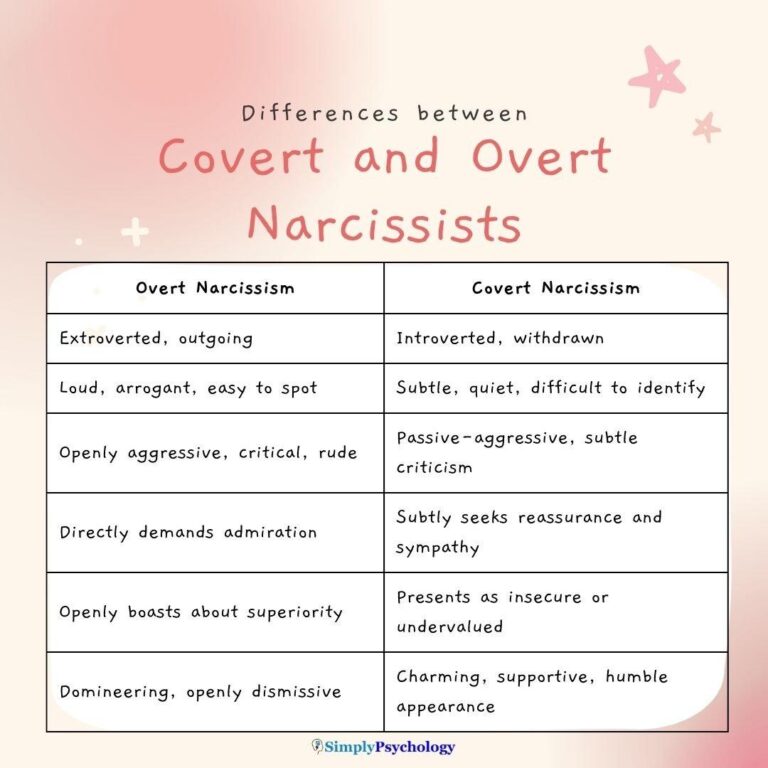In a world where narcissism is often associated with loud, boastful personalities, a quieter, more insidious form tends to fly under the radar—covert narcissism. Unlike the overt variety that’s easy to spot, covert narcissists mask their self-centeredness behind a facade of humility, vulnerability, or even victimhood. This subtlety makes understanding and recognizing covert narcissism especially challenging, yet crucial, for anyone looking to protect their emotional well-being. In this article, we’ll delve into the key signs of covert narcissism, helping you identify these hidden behaviors before they take a toll on your relationships and mental health.
Table of Contents
- Understanding the Subtle Behaviors That Define Covert Narcissism
- Emotional Impact and Challenges Faced by Victims
- Effective Strategies for Setting Boundaries and Protecting Yourself
- Seeking Professional Help and Navigating the Path to Healing
- Future Outlook
Understanding the Subtle Behaviors That Define Covert Narcissism
Covert narcissism often manifests through behaviors that appear inconspicuous or even self-effacing at first glance. Unlike the typical overt narcissist who openly seeks admiration and validation, those with covert traits express their need for recognition in more subdued and indirect ways. This can include frequent expressions of victimhood, passive-aggressiveness, and a tendency to sulk rather than confront openly. Their self-importance is masked beneath a veneer of humility or insecurity, making it difficult for others to identify the underlying narcissistic patterns without careful observation.
Understanding these subtle cues helps in differentiating covert narcissism from other personality traits. Some key behaviors to watch for include:
- Chronic sensitivity to criticism: even mild feedback can trigger disproportionate emotional responses.
- Quiet envy: they often harbor feelings of jealousy towards others’ successes but rarely express them openly.
- Emotional withdrawal: instead of assertiveness, they may retreat or give the silent treatment as a way to control situations.
- Subtle manipulation: employing guilt, pity, or passive resistance to influence others without direct confrontation.
Emotional Impact and Challenges Faced by Victims
Victims often endure an overwhelming sense of confusion and self-doubt, as covert narcissists expertly manipulate emotions beneath the surface. This subtle form of abuse can undermine one’s confidence and warp their reality, leaving them trapped in a cycle of guilt and anxiety. The emotional impact is not only deeply isolating but can manifest in symptoms such as depression, chronic stress, and a persistent fear of being “not enough.” Over time, these feelings can erode a person’s sense of self-worth, making recovery a long and complicated journey.
Complicating matters further, many victims face challenges that go beyond the emotional scars. Some common hardships include:
- Difficulty setting boundaries: covert narcissists often disguise control as concern, making it tough to establish and maintain personal limits.
- Social isolation: manipulation tactics can drive wedges between victims and their support networks, leaving them feeling alone.
- Trust issues: repeated gaslighting leads to skepticism in relationships, hampering future emotional connections.
- Internalized blame: victims frequently shoulder undue guilt, believing they are responsible for the abuser’s behavior.
Recognizing these challenges is a crucial step toward healing and regaining empowerment. It is vital for survivors to seek validation for their experiences and access support systems tailored to these unique emotional wounds.
Effective Strategies for Setting Boundaries and Protecting Yourself
Establishing strong personal limits is essential when dealing with covert narcissists, as their subtle manipulations often blur the lines between genuine concern and control. Start by clearly defining what behaviors you will and will not tolerate. Communicate these boundaries calmly but firmly, and avoid justifying or over-explaining your decisions—as covert narcissists may use any ambiguity to exploit you. Keep in mind that consistency is key; wavering boundaries invite repeated violations and erode your self-respect over time.
Additionally, protect your emotional well-being by adopting practical strategies such as:
- Limiting interaction frequency: Reduce contact to preserve your mental space and prevent overwhelm.
- Seeking external support: Confide in trusted friends or professionals who can provide objective perspectives.
- Maintaining self-awareness: Regularly check in with your feelings to recognize when you are being manipulated or drained.
- Practicing assertive communication: Use “I” statements to express your needs without becoming defensive.
These approaches empower you to protect your identity and remain grounded, preventing covert narcissism from infiltrating your sense of self.
Seeking Professional Help and Navigating the Path to Healing
When dealing with the complex dynamics of covert narcissism, reaching out to a qualified mental health professional can be a pivotal step toward recovery. Therapists trained in personality disorders or trauma-informed care can offer tailored strategies to help you understand and dismantle the emotional patterns that have taken root. It’s important to remember that healing is not linear; progress often comes in small, manageable steps that build resilience over time. A supportive therapist can serve as both a guide and a safe space for processing difficult emotions and rebuilding your self-worth.
Consider these practical approaches when navigating your path to healing:
- Seek therapists familiar with narcissistic abuse recovery. Specialized knowledge makes a difference.
- Utilize support groups. Sharing your experience can reduce isolation and foster understanding.
- Implement mindfulness and grounding techniques. These can help manage emotional triggers effectively.
- Create personalized boundaries. Learning to assert yourself protects your emotional wellbeing.
Future Outlook
Understanding covert narcissism is essential for recognizing the subtle ways it can affect relationships and personal well-being. By being aware of the key signs—from passive-aggressiveness to hidden feelings of entitlement—you empower yourself to set healthy boundaries and seek support when needed. While covert narcissism may not always be obvious, paying attention to these patterns can lead to greater clarity and emotional resilience. Remember, recognizing the problem is the first step toward healing and creating healthier connections in your life.

